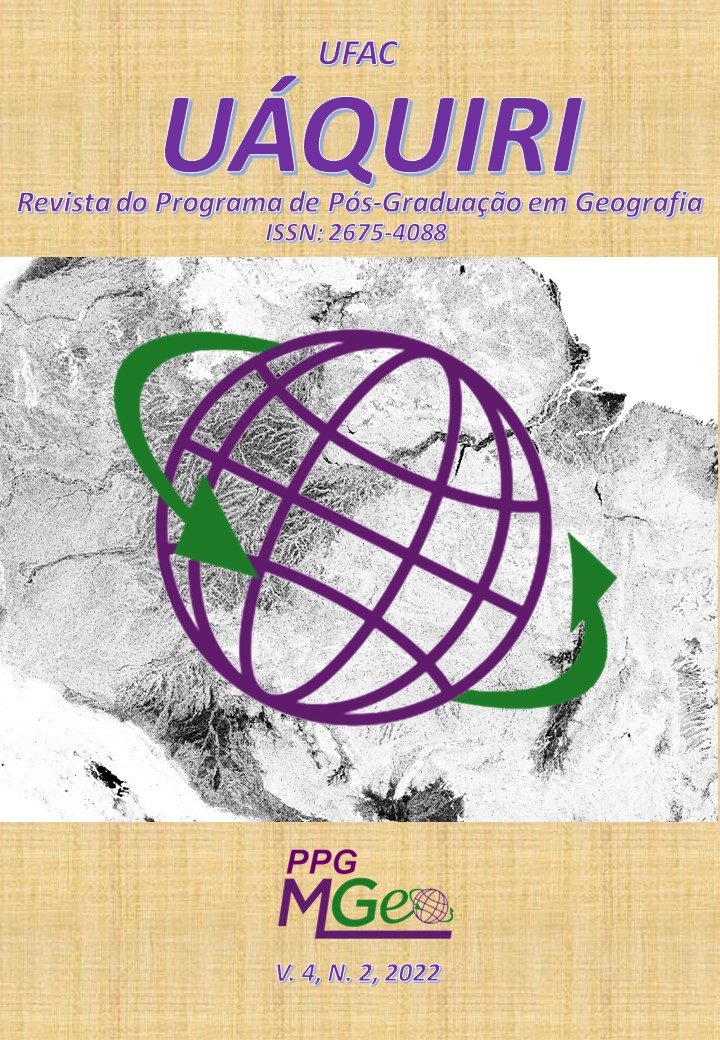EDUCAÇÃO PARA RELAÇÕES ÉTNICO RACIAIS EM GEOGRAFIA: IDENTIFICAÇÃO DE ALGUNS ASPECTOS PRESENTES NO CURRÍCULO DE REFERÊNCIA ÚNICO DO ACRE DA ÁREA DE GEOGRAFIA DO ENSINO FUNDAMENTAL II
DOI:
https://doi.org/10.29327/268458.4.2-1Keywords:
Ensino de Geografia, Relações Étnico-Raciais, Currículo de Referência Único do AcreAbstract
The objective of this paper is to discuss how Geography can contribute to the development of teaching about racial diversity, more specifically, the teaching of Afro-Brazilian and indigenous history and culture from what is ensured in Law 11.645/2008, drawing a parallel with the analysis of the Single Reference Curriculum of Acre in the curriculum component of Geography, final years of elementary school, to identify how this theme is proposed in the curriculum of this discipline. From the notes made about the education of ethnic-racial relations in Geography, it is possible to affirm that the subject has the necessary instruments, according to the themes it approaches, for the promotion, together with other areas of knowledge, of education for ethnic-racial relations. In the Single Reference Curriculum of Acre, the objects of knowledge that give room for addressing the ethnic-racial theme are highlighted extensively. Those that are more specific are found in the curricular organizing chart of the eighth grade, starting with the theme of the African continent. Thus, it is understood that the Geography teacher, more attentive to ethnic-racial issues and committed to education that involves developing positive and respectful ethnic-racial relationships, will work on these issues in depth in the classroom environment.
Downloads
References
ACRE. Secretaria de Estado de Educação do Acre. Currículo de Referência Único do Acre. Ensino Fundamental. SEE/AC: Rio Branco, 2019.
BRASIL, Conselho Nacional de Educação. Resolução n° 1 de 17 de junho de 2004. Institui Diretrizes Curriculares Nacionais para a Educação das Relações Étnico Raciais e para o Ensino de História e Cultura Afro-Brasileira e Africana. Disponível em: http://portal.mec.gov.br/cne/arquivos/pdf/res012004.pdf Acesso em: 23 de junho de 2022
BRASIL. Ministério da Educação. Parecer CNE/CP n° 003 de 10 de março de 2004. Dispõe sobre as Diretrizes Curriculares Nacionais para a Educação das Relações Étnico Raciais e para o Ensino de História e Cultura Afro-Brasileira e Africana. Disponível em: http://portal.mec.gov.br/dmdocuments/cnecp_003.pdf Acesso em: 08 de junho de 2022.
COELHO, Rogério Mendes. Saberes ausentes da "Cidade Letrada". Por um Iluminismo mestiço. Literatura: teoria, história, crítica, [s. l.], v. 23, n. 1, p. 121-159, 2021. Disponível em: https://revistas.unal.edu.co/index.php/lthc/article/view/90597/77633. Acesso em: 27 de maio de 2022.
GPEGPSHI – Grupo de Pesquisa em Ensino de Geografia na Perspectiva do Ser Humano Integral. A África na Geografia escolar: Inserir não é contemplar. Youtube, 05 de julho de 2022. Disponível em: https://youtu.be/W_wNkn2Vzl4
LIMA, Valeska Nogueira De et al.A educação para as relações étnico-raciais no âmbito da legislação brasileira. Anais III Congresso Internacional de Educação Inclusiva. Campina Grande: Realize Editora, 2018. Disponível em: <https://www.editorarealize.com.br/artigo/visualizar/44223>. Acesso em: 19/07/2022 18:43
QUIJANO, Aníbal. Colonialidade do poder, eurocentrismo e América Latina. In: Edgardo Lander (Org.). A colonialidade do saber: eurocentrismo e ciências sociais – perspectivas latino-americanas. Buenos Aires, CLACSO, 2005. p. 117-142. Disponível em:<http://biblioteca.clacso.edu.ar/clacso/sur-sur/20100624103322/12_Quijano.pdf>Acesso em: 03 de maio de 2022.
SILVA, Petronilha Beatriz Gonçalves E. Aprender, ensinar e relações étnico-raciais no Brasil. Educação. Porto Alegre/RS, ano XXX, n. 3 (63), p. 489-506, set./dez. 2007.
SOUZA, Lorena Francisco de; SANTOS, Camila da Conceição Reis. A Geografia Escolar e o Ensino das Relações Étnico-Raciais: Apontamentos a partir do Currículo Referência do Estado de Goiás. Revista da Associação Brasileira de Pesquisadores/as Negros/as (ABPN), [S.l.], v. 12, n. Ed. Especial, p. 273-291, abr. 2020. ISSN 2177-2770. Disponível em: <https://abpnrevista.org.br/index.php/site/article/view/865>. Acesso em: 19 jul. 2022.










